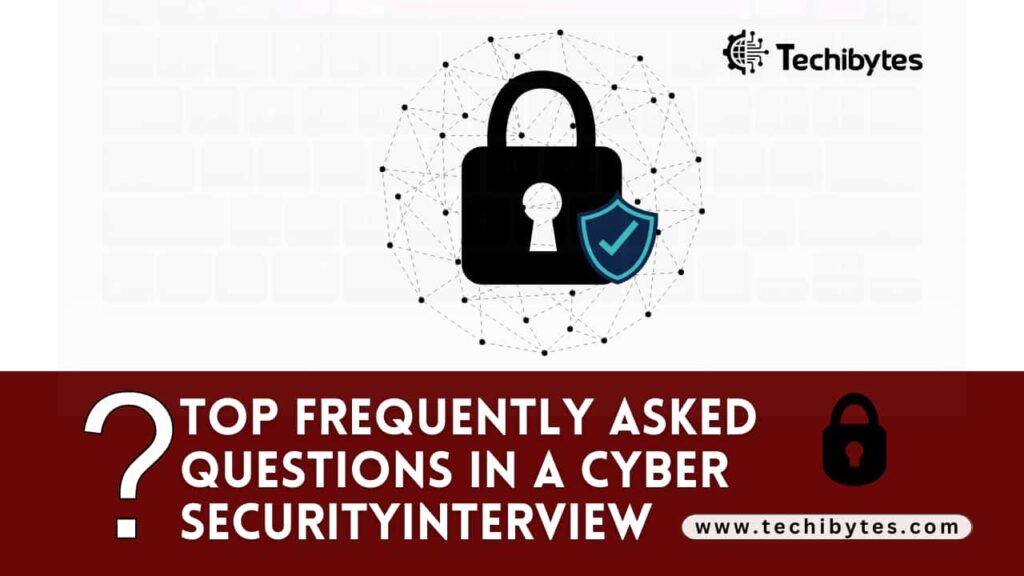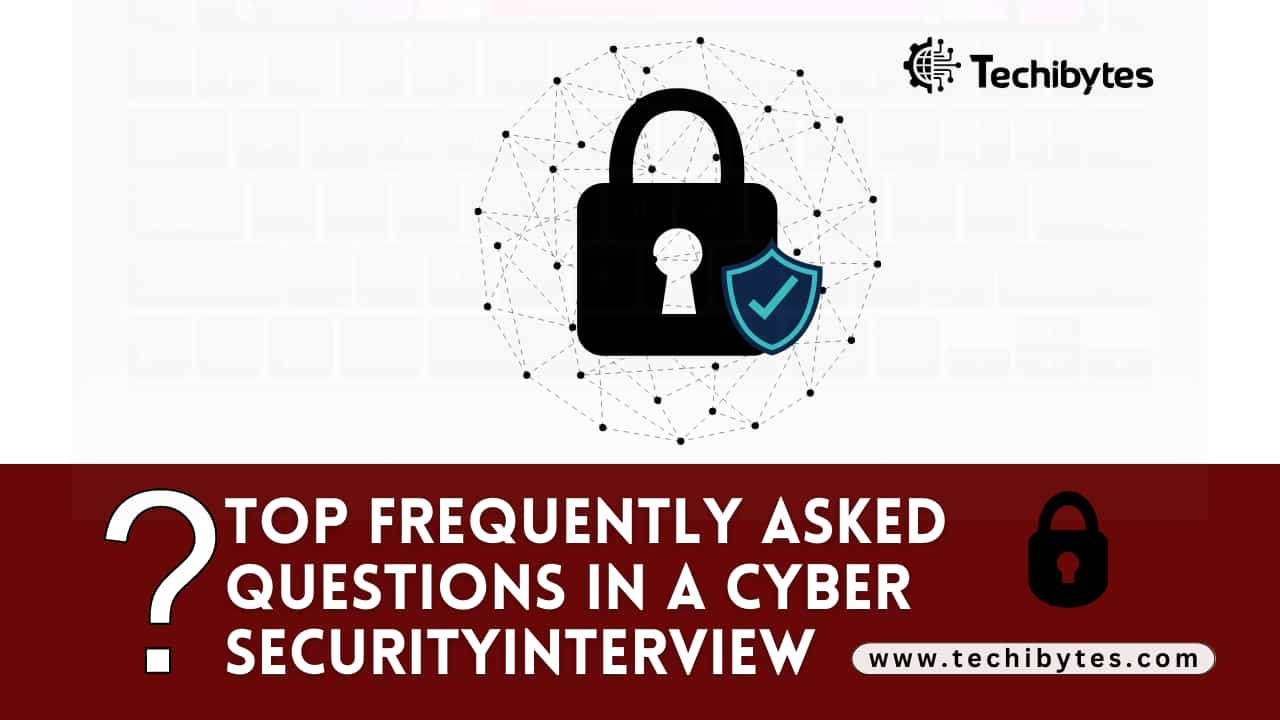Cybersecurity is one of the newest and fastest-growing fields in the technological world. Logically, people with expertise in this sector will be needed to work in tech companies. So we addressed some cybersecurity questions and answers
Being interviewed for a position in cyber security might tend to be intimidating. There are several terms that as a cybersecurity professional, you should have at your fingertips. You are required to know the basic terms such as DNS, encryption, decryption, firewalls, penetration testers, and many others.
Apart from common skills, you should know that the questions will also consist of technical cybersecurity questions, situational cybersecurity job interviews, behavioral cybersecurity questions, and advanced cybersecurity questions.
In your prior preparations, you should touch all these sectors to avoid “surprises” in the interview room. Note that these questions are designed to test your technical skills and your general behavior.
Table of Contents
5 Frequently CYBER SECURITY Questions and answers in Interview

Here are some of the most frequently asked questions in a cybersecurity job interview.
Q1: Can you explain some security basics to show you have experience in the field?
As much as you wish to seem invested in the field, you are being interviewed for, memorize and take an in-depth look at the basic terms
To begin with, you should know that there is a significant difference between a vulnerability, risk, and exploit. A vulnerability is a frailty in a company’s defenses that enables third parties to exploit.
Vulnerabilities are common in servers, websites, OSes, and software, which means it is not a new thing in the cybersecurity field. This also justifies why you should touch on it during your cybersecurity interview. A risk is a potential loss attributed to the vulnerability.
On the other hand, you need to be careful when third-party users use the vulnerability to their favor and gain unsanctioned access to the organization’s information or corporate network.
You should have basic knowledge of how encrypted data thwarts attackers and have skills in how email encryption operates across different networks. You should also go into the interview bearing knowledge of SSL and HTTPS knowledge. SSL can be either a single domain or wildcard SSL or a multi-domain SSL certificate.
SSL creates an encrypted link between the server and the client, in normal situations, this is the web server and the web browser. HTTPS simply secures the communications going on in a specific server.
When going for your cybersecurity interview, you ought to know that the little lock on the left of the browser address bar represents HTTPS.
Lastly, you should know that the year 2020 had a significant impact on the technological world. Due to the coronavirus, many people had to take their jobs online, which meant all these users needed to protect their information. 2020 was the year of ransomware.
As a candidate, the interviewers will expect you to know how ransomware works. The term ransomware simply emerges when attackers encrypt files and threaten to release the files to the public unless the victims give in to their demands, which is, of course, a ransom. An attack similar to this is a Cross-site scripting attack.
Read more about: Enterprise password management software
Q2: How can you protect yourself from a Cross-site scripting attack?
Let us start with what a Cross-site scripting attack or XXS is. A cross-site scripting attack is where the attacker executes a code injection on the client’s side. The attackers tend to implement baleful scripts in the client’s web browser by including a code in a legal website.
This is of the most common vulnerabilities found in online applications. Getting rid of this type of vulnerability is difficult but you can incorporate tactics such as validating the input, escaping, and sanitizing. These can assist you in protecting yourself from this type of attack.
Q3:What is the difference between Encoding, Hashing, and Encryption
These three terms are close to the same thing, which tends to bring confusion. In the Encoding procedure, the data is modified to a form, which can be read by most systems. This also makes it possible to use the data in external processes.
Encryption comes in as a branch of the Encoding technique where data is encoded in a way that only allows authorized users to access the data. The hashing procedure is a process where the data is converted into a hash function. This is any generated number from a text or a string.
Q4: What is a brute force attack?
This is a trial-and-error method to decode data that is to be encrypted. This can be data such as a password where possible credentials will be input and eliminated if they turn out to be wrong.
You should also know that they are not input manually as the brute force is automated. Some of the steps you should put in place to prevent these cyberattacks can be two-step verification, setting a limit on the number of failed logins, and even meeting the password complexity and length.
Q5: How do you stay on top of cybers security news and trends?
This question is aimed at examining your personality. It is a clever substitute for the question “Tell us something about yourself” but in terms of cybersecurity. Well, in cybersecurity, staying on top and ahead of trends is significant. You can do this by incorporating a few tweaks in your company’s social media manager routine.
You should regularly read cybersecurity blogs and news sites. If you have any experience in cybersecurity networking, and trading ideas with other cybersecurity professionals be it at conferences, live events, and other planned meet-ups, it would help to mention them when given the platform.
Conclusion
The above are not necessarily the questions that you will be asked at your Cybersecurity interview but they have appeared frequently in the interviewer’s questions. These should also give you a hint about the sectors in that you should spend your time.
If you liked this article, then please subscribe to our YouTube Channel for videos relating to this article. You can also find us on Twitter and Facebook.










